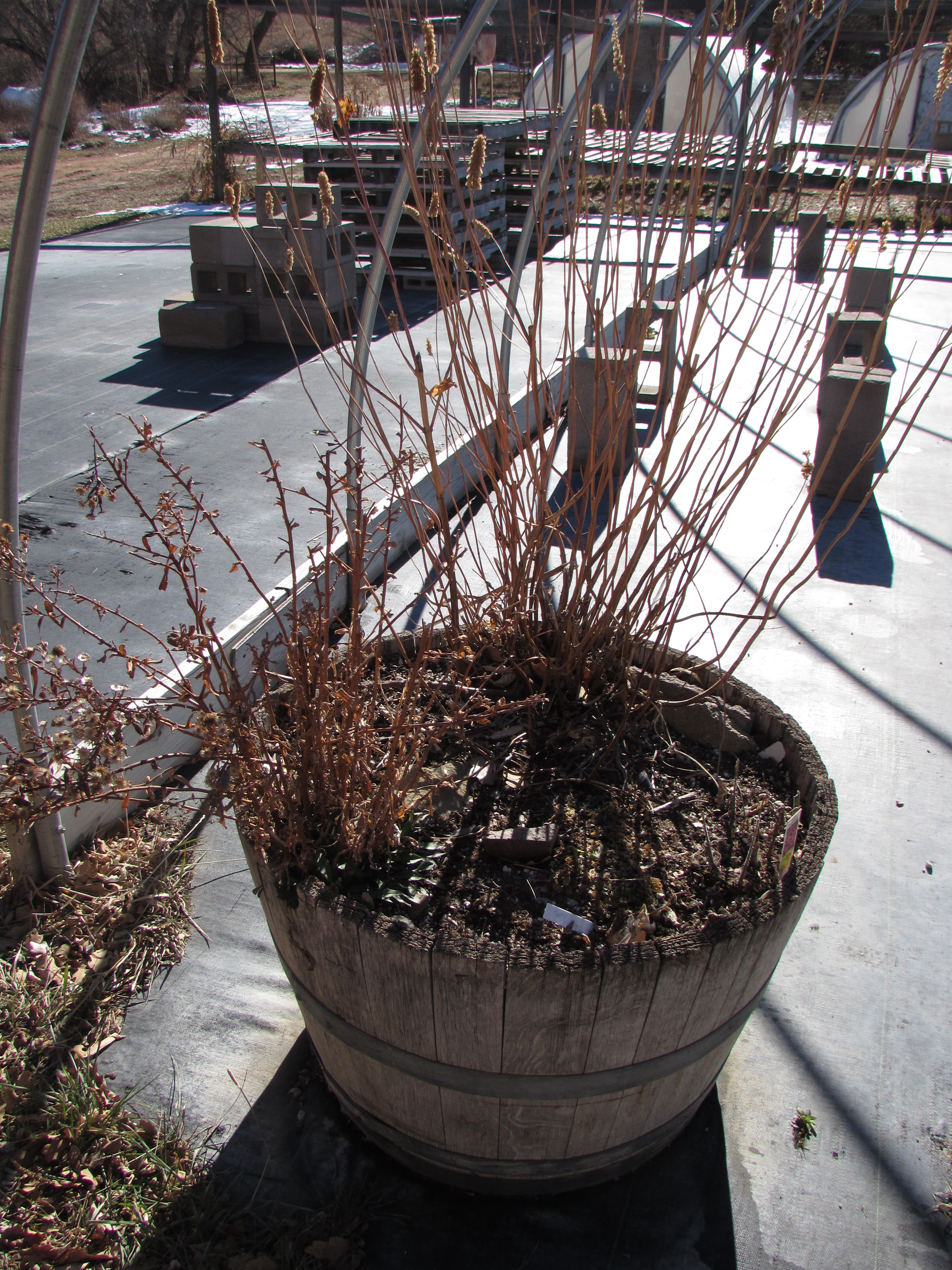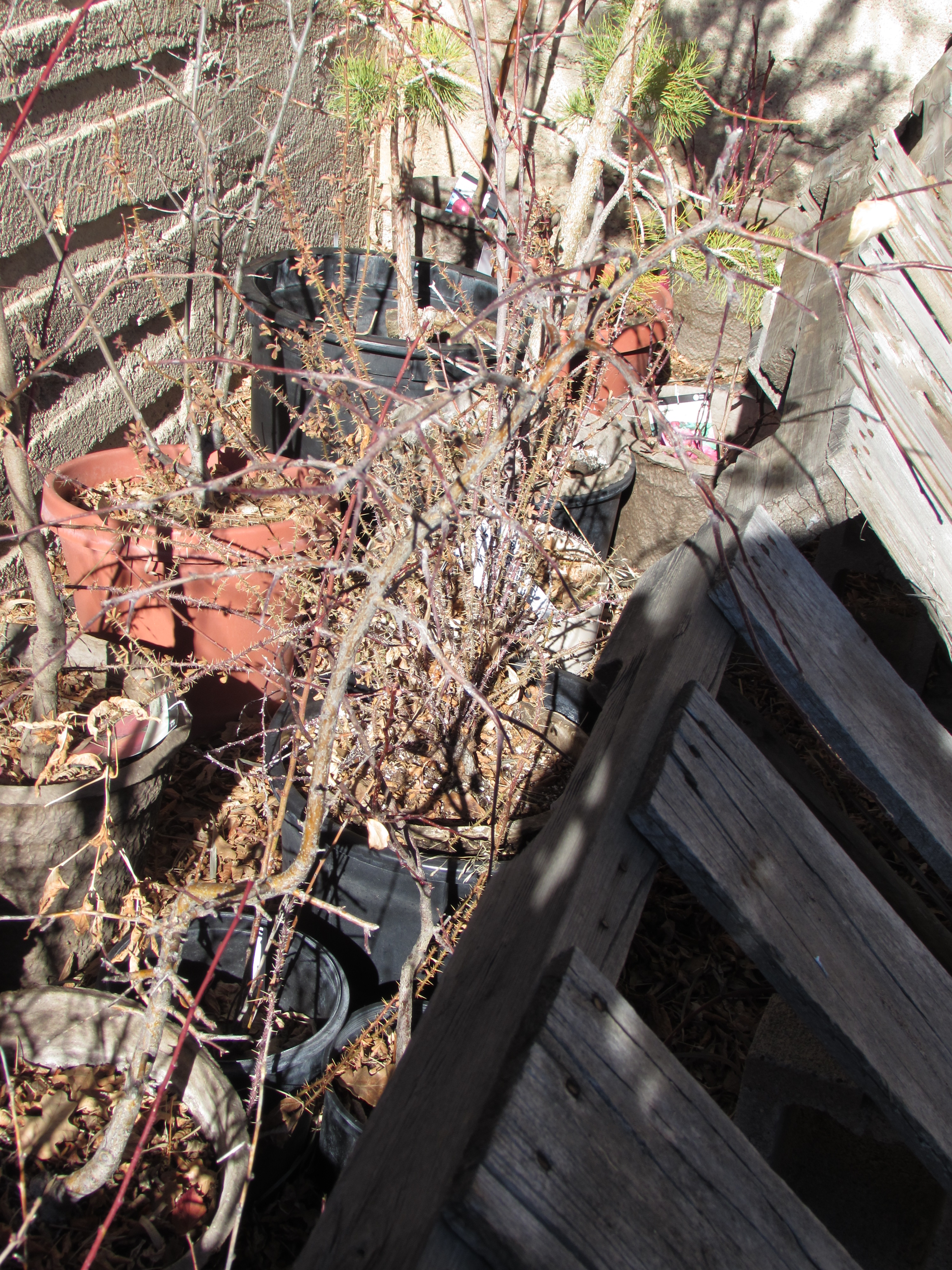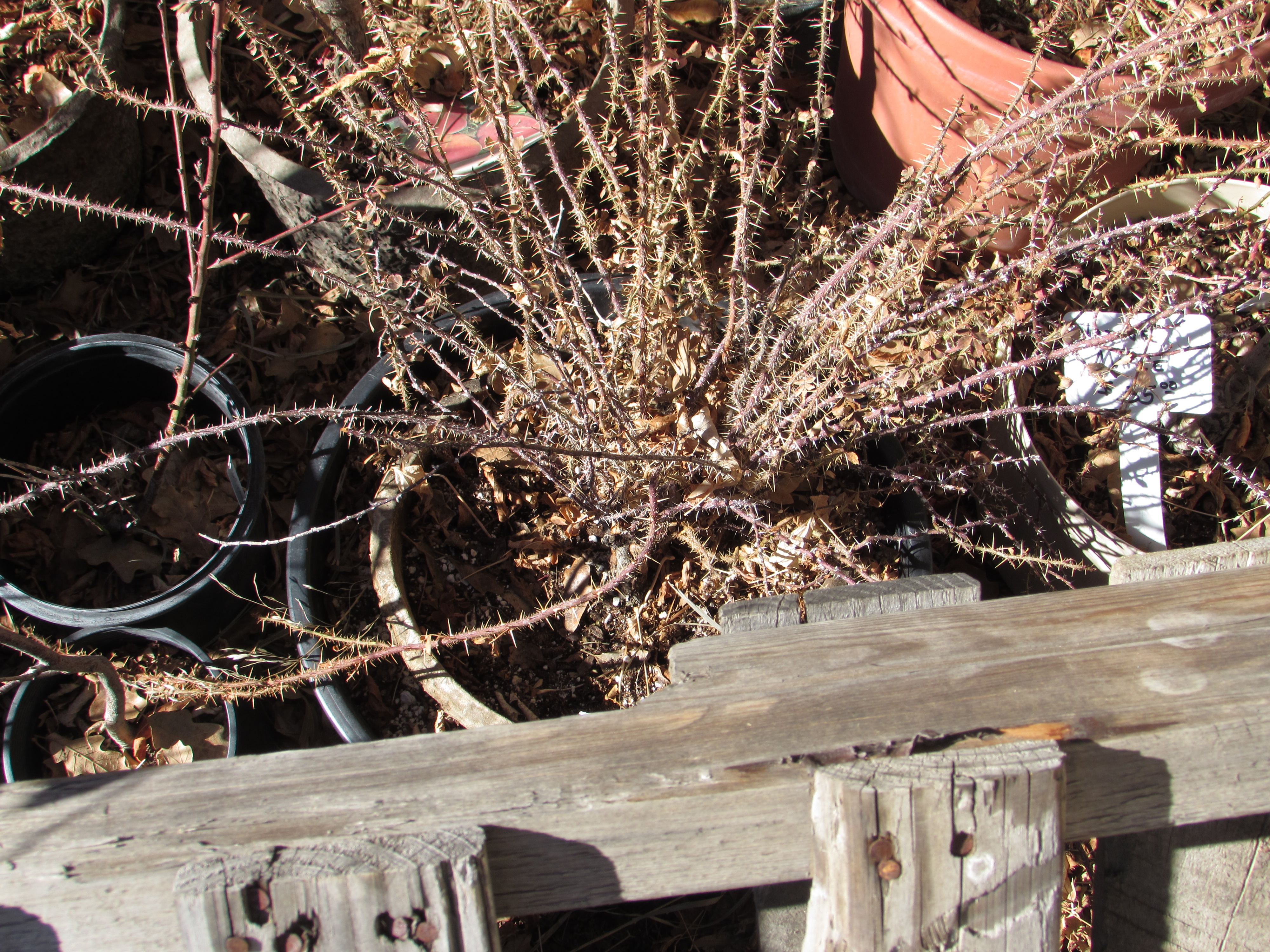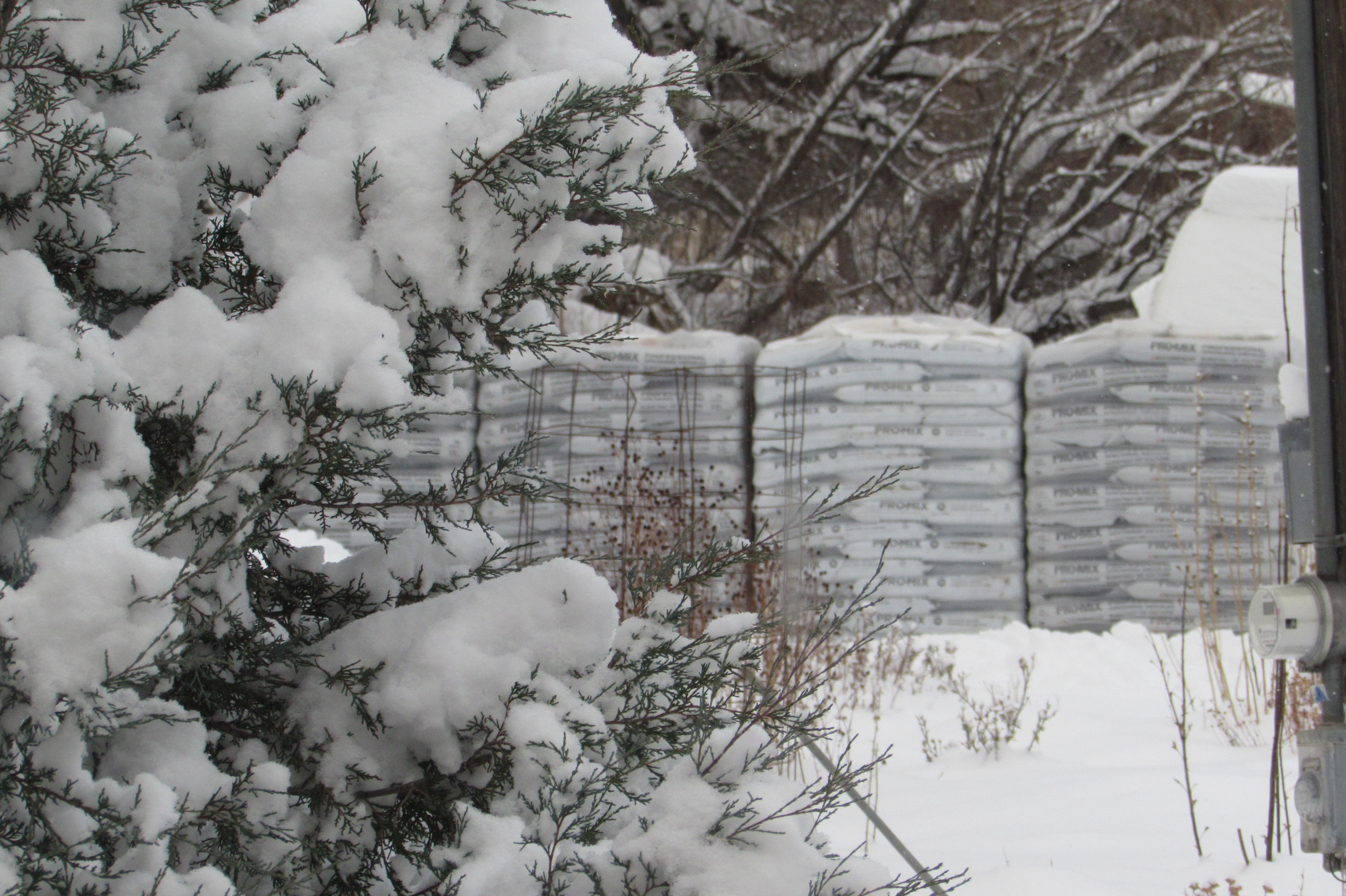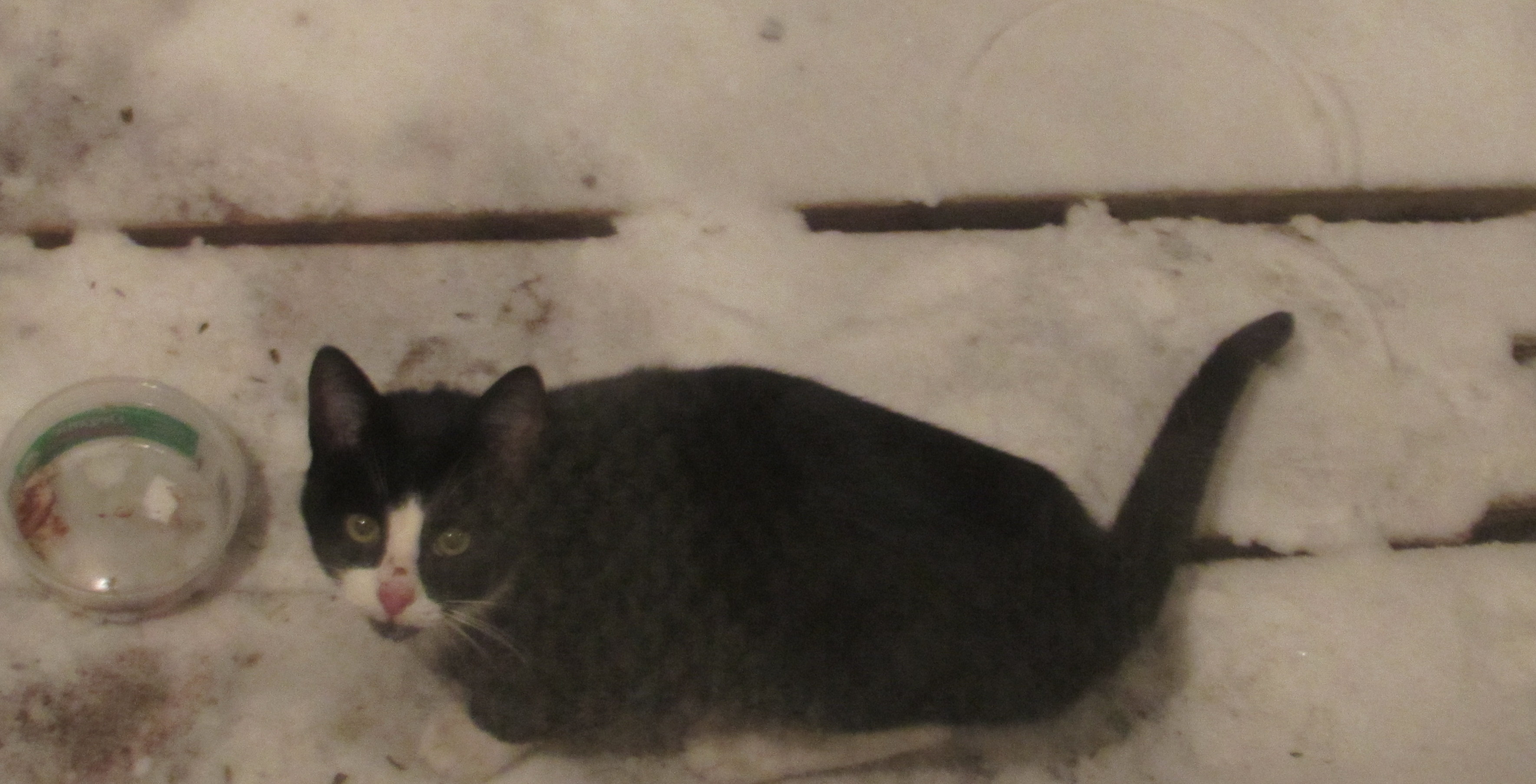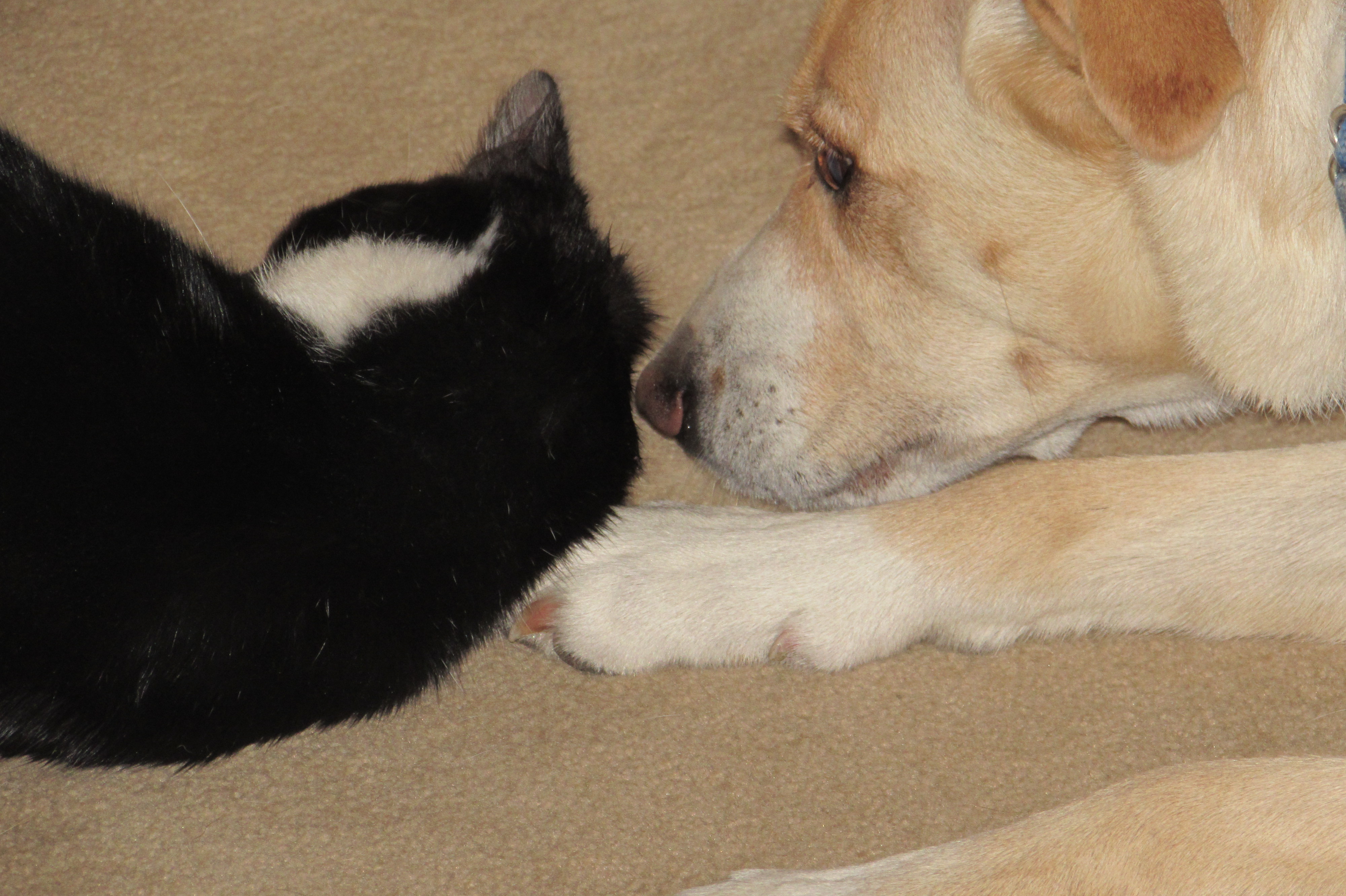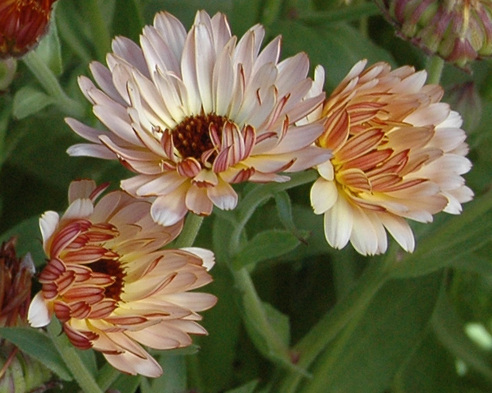That’s a question we hear all the time in the nursery, and it’s sort of confusing to me. I’m talking to someone, we’re looking at a plant (in a pot) and that person asks, “Can I grow that in a pot?” It is growing in a pot, so the short answer is yes. I know, though, that what they really want to know is, can I grow this in a pot instead of the garden, can it stay in a pot for years, or at least a year or two?
I’ve been thinking about that question a lot as I order seeds and plants this year, because there are many advantages to growing perennials and even trees in containers: protection from deer and gophers; eliminate or lessen bending and stooping; less weeding; and, more control over soil composition. I’ve been inspired, too, by the book Epic Tomatoes, and the author’s comments on growing vegetables in pots.
Here are some plants that we overwinter outside in containers, without protection:
Native cactus.
The picture in the middle shows Agastache ‘Black Adder’ in a whisky barrel. It’s been in that barrel for three winters now. Most catalogs list this agastache as hardy only to Zone 6. Our part of Colorado is Zone 5, bordering on Zone 4, according to the USDA zone map, and in fact I’ve lost this agastache in the garden more than one time. Yet, here it is, surviving and blooming like crazy for three years in this barrel. Why? I think it’s because it isn’t mired in my soggy wet clay soil in the winter.
The woody plants in the last picture have also survived (they or their kin) in pots, up against the old barn foundation, in winters with low temperature down to minus 17 F.
This year I’m trying a rose in that area, a rose considered hardy only to Zone 6, the New Mexico native rose, Rosa stellata. This rose has done well for our customers in Pueblo, but Pueblo is usually considered Zone 6, so this will be a test at our elevation. I did put the rose inside a bigger pot before winter, with extra dirt to insulate it, trying to give it a better chance.

